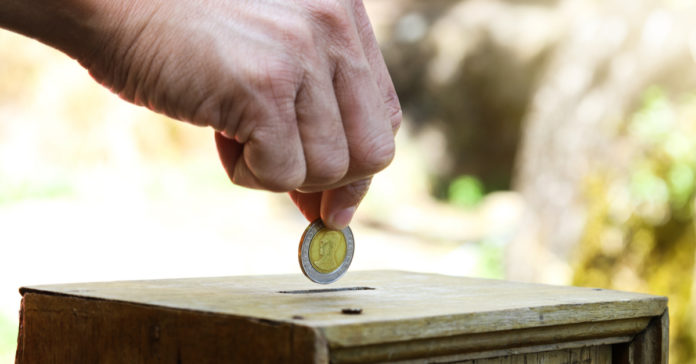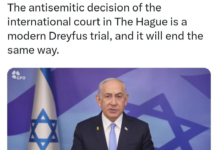Muzmatch CEO Shahzad Younas says after a string of scandals Muslims must open their eyes to the Islamic charity sector and demand higher standards of it.
I think it’s high time we talked about the Muslim Charity sector here in the UK especially.
I’m not going to mention any charities in particular. And that isn’t the point of this post. It’s more that I am just sick of what I see/hear/observe. Not to say any of this doesn’t happen in the non-Muslim charity sector – I am sure it does. But surely we owe it to ourselves to understand what is going on given the Muslim charity sector in the UK is possibly one of the biggest.
For those who follow this sector, unfortunately many are not surprised when we see negative headlines break, almost just repeating themselves but with different charities involved:
- Financial concerns
- Gross misconduct
- Financial irregularities – poor accounting and money going “missing”
- DONOR money being burned on vanity projects and “consultants”… or worse
- Money spent on consultants and companies who happen to be connected to the founders/leadership teams
- Harassment
- High levels of unprofessionalism
- Directors being suspended
- Directors leaving one charity (usually shortly after some irregularity) and then turning up at another
- Zakat misuse
- Competition between Muslim charities often at the expense of another, with donor money being the weapon used
- Charities running Google/online ads targeting other Muslim charity’s traffic
- Private businesses owned by leadership teams receiving contracts/payments for services rendered!
- Aggressive and questionable tactics (also using paid PR firms) used to shut down online/offline negative reports highlighting such irregularities
Charity Commission
Another problem we have is the nature of how the Charity Commission operates.
We think: “Oh they will make sure this stuff doesn’t happen.” And whilst the CC does regulate the sector, for the most part, once the “offending” party has left (usually after such damage/malpractice has already taken place), they have little further scope or appetite to continue to pursue corrective practises.
Subscribe to our newsletter and stay updated on the latest news and updates from around the Muslim world!
Hence, it becomes a bit of a merry-go-round of bad actors/practices, with little in the way of actual punishment/accountability.
Furthermore, whistleblowers aren’t properly supported, and usually/unfortunately act too late.
When I graduated and then started to donate to X, Y and Z charity, one by one the more I found out about how they ran, or how relatively little of my money was actually going to the intended recipients, the fewer charities I then donated to.
Let me be clear – there are definitely some good Muslim charities out there with lofty and noble aims, and what’s more I personally know good/sincere people working at these charities. I also know good volunteers and employees of charities which perhaps aren’t being run in a manner befitting the amaanah they have of OUR MONEY.
Yes – don’t ever forget – ALL the money these Muslim charities have isn’t theirs. It is yours. It belongs to the donors. The sole purpose of the charity is to fulfil our obligation with those funds in a manner that is prudent and as promised, with maximal transparency and accountability.
Yet if you ask most people what their biggest gripe is of the Muslim Charity sector, many will say a sheer lack of real transparency and questionable costs. But I doubt anyone would have an issue with a charity which had high costs, as long as the charity was exceedingly transparent in how those costs were derived and precisely where money was spent. Then it is on the donors to effectively buy into the mission/investment being sought.
Solutions
So what is the point of this post? What should we do?
The answer is simple. The problems above ONLY really exist because we are lazy. We donate and never really ask questions. We never demand accountability. We never ask why certain charities “sponsor” every single event going on, and at what cost. We never dig into their accounts, projects, aims, costs, practises. We never ask the cost of securing their “celebrity ambassadors.”
We don’t demand higher standards. We just assume they will do the right thing. And this clearly isn’t good enough.
My simple request is that we as donors should actively contact those charities you donate to, and ask for details of their finances and practices.
- DO YOUR OWN RESEARCH. Read up! There are news organisations trying to do some of this work but it is only when we as donors demand more accountability will we get it.
- Ask for answers in relation to news articles you see – don’t be fobbed off by: “We are unable to comment.”
- Make those requests to the trustees and leadership teams of these charities.
- Ask to understand their cost structure
- Ask to understand which outside agencies are used and are they truly independent of the charity and its employees
- Ask to understand their Zakat policy and how funds are segregated
- Ask to understand how promised projects are actually being run on the ground, and have they been completed
- Chase up for progress/proof of projects you have donated to
It’s high time that Muslim charities by default felt a stronger obligation to us as donors in terms of justifying every penny spent and WHERE and WHO it went to – be it to a real recipient or an agency. What’s more, they should know that they OWE us a rebuttal or clear explanation of any reported incidents at their organisation.
Again I want to repeat, this is not a knock on all Muslim Charities and for those doing good work in the right way, we are all thankful. But let’s collectively start asking these questions of all Muslim charities we donate to. Let’s demand higher standards.
Shahzad Younas is the CEO of Muslim matrimonial app MuzMatch, and they are raising money this Ramadan to build a school in Pakistan for disadvantaged children: launchgood.com/muzmatch




















